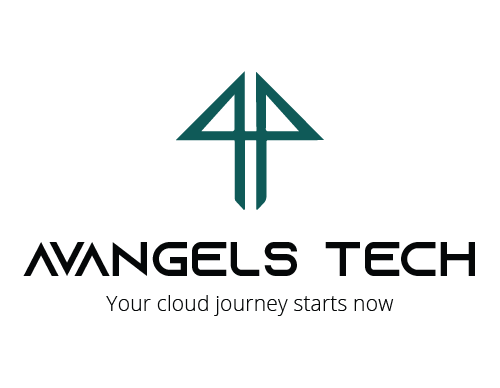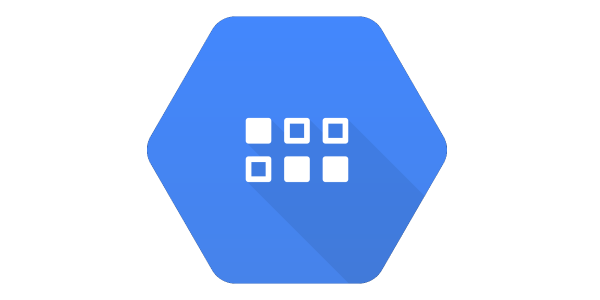Google Cloud Datastore
A Comprehensive Guide
This series of blogs looks at some of the most popular and commonly used services on the Google Cloud Platform. In this blog, we discuss Google Cloud Datastore.
Additional Reading
For more detailed documentation on “Google Cloud Datastore”, please visit the official Google Cloud website.
For official documentation on “Firestore in Datastore mode”, please visit the official Google Cloud website.
To get a deeper understanding of “Google Cloud Apigee”, please refer to the attached link.
To get more information on “Google Kubernetes Engine”, please refer to the attached link.
To get more information on “Google App Engine”, please refer to the attached link
For more blogs on “Google Cloud Services”, please refer to the attached link.
Introduction
In today’s data-driven world, organizations rely heavily on efficient and scalable data storage solutions to manage their ever-growing datasets. Google Cloud Datastore is one such solution that offers a robust and flexible NoSQL database service. Google Cloud Datastore is a NoSQL database service provided by Google Cloud Platform (GCP) that offers a robust and scalable solution for handling large amounts of data while maintaining high availability and reliability.
Businesses and developers are constantly seeking efficient ways to manage and store their data. Google Cloud Datastore, has emerged as a powerful solution. It offers a highly scalable, fully managed, NoSQL database for your applications, making it easier to build and scale applications without worrying about the underlying infrastructure.
This blog post explores Google Cloud Datastore, its features, use cases, and why it has become a preferred choice for businesses looking to store, manage, and query their data at scale.
What is Google Cloud Datastore?
Google Cloud Datastore is a fully managed NoSQL database service offered by Google Cloud Platform (GCP). It is designed to provide a highly scalable, flexible, and serverless data storage solution for web and mobile applications. Datastore is built on Google’s infrastructure and is capable of handling both structured and semi-structured data.
Google Cloud Datastore, also known simply as Datastore, is a fully managed, schema-less, NoSQL database service that is part of the Google Cloud Platform. It is designed to store and query structured data for web and mobile applications. Datastore is based on Google’s experience with building and operating large-scale, distributed systems, making it a robust and reliable choice for developers and organizations. Google Cloud Datastore is built on the same infrastructure that powers Google’s global products like Google Search, making it a robust choice for businesses of all sizes.
Key Features and Benefits of Google Cloud Datastore
1. Scalability: Google Cloud Datastore can scale horizontally to handle massive workloads and high-traffic applications seamlessly. It can handle both read and write-intensive workloads, making it suitable for a wide range of applications. It automatically manages the underlying infrastructure, making it easy to handle sudden spikes in demand. Whether you have a few gigabytes of data or several terabytes, Datastore can handle it, ensuring your application remains responsive as it grows.
2. Schema-less Data Model: Datastore uses a schema-less data model. Unlike traditional relational databases, Datastore does not require a predefined schema. You can store entities with varying properties and update the schema on the fly, making it easy to adapt to changing data requirements. This flexibility is particularly advantageous for applications with evolving data structures, making it easy to adapt to changing data needs without significant downtime or schema migrations.
3. Strong Consistency: Datastore offers strong consistency for read and write operations, ensuring that you always read the most up-to-date data. However, it also provides options for eventual consistency when needed. This ensures that your data remains accurate and consistent, even in highly concurrent environments. This is crucial for applications where data integrity is paramount.
4. NoSQL Database: It is a NoSQL database, which means it can store structured and semi-structured data. This flexibility makes it suitable for a wide range of applications, from simple web apps to complex data analytics.
5. Global Distribution: You can deploy your Datastore instances in multiple GCP regions around the world, allowing you to serve your application’s users with low-latency access to data, regardless of their geographic location. This feature is crucial for building global applications.
6. Serverless and Fully Managed: Google Cloud Datastore is a serverless solution, which means you don’t have to worry about provisioning, managing, or scaling the underlying infrastructure. Google handles all of that for you, allowing you to focus on building your application. Additionally, Google Cloud Datastore is fully managed by Google. This means you don’t need to worry about database maintenance tasks like backups, updates, or scaling. Google takes care of these aspects, allowing you to focus on building and running your applications.
7. Transactions: Datastore supports distributed transactions, enabling you to maintain data integrity even in complex scenarios involving multiple entities. It supports ACID (Atomicity, Consistency, Isolation and Durability) compliant transactions, allowing you to perform multiple operations in a transactional manner. This ensures data consistency even in complex operations.
8. Automatic Indexing: Datastore automatically indexes properties of entities, making it efficient for querying data. You can query data using Google’s Query Language (GQL) or through a programmatic API.
9. High Availability: Google’s infrastructure is known for its reliability. Datastore replicates your data across multiple data centres. For high availability, fault tolerance and disaster recovery, Datastore provides multi-region replication, ensuring that your data is replicated across multiple Google Cloud regions. This ensures that your data remains accessible even in the event of infrastructure failures, and minimizes the risk of data loss or downtime.
10. Integrated with Google Cloud: Datastore seamlessly integrates with other Google Cloud services like Google App Engine, Google Cloud Functions, BigQuery, Compute Engine, and Google Kubernetes Engine, making it easier to build and deploy cloud-native applications on Google Cloud.
11. Integrated Security: Datastore integrates with Google Cloud Identity and Access Management (IAM), allowing you to control who has access to your data and what actions they can perform, ensuring that your data is secure.
12. Full-text Search: It includes a built-in full-text search feature, making it easy to perform text-based searches on your data.
13. Scalable Pricing: Datastore offers a flexible pricing model that allows you to pay only for the resources you use, making it cost-effective for both small startups and large enterprises.
14. Managed Backups: Google Cloud Datastore automatically backs up your data, providing a way to restore data in case of accidental deletion or data corruption.
15. Powerful Query Capabilities: Datastore supports querying for data retrieval, allowing you to filter and sort data efficiently. You can create complex queries using the GQL (Google Query Language) or use the Datastore API for programmatic access, allowing you to filter, sort, and retrieve data efficiently.
Use Cases for Google Cloud Datastore
1. Web and Mobile Applications: Datastore is an excellent choice for web and mobile apps that require a flexible and scalable database. Whether you’re building a content management system, an e-commerce platform, or a gaming leaderboard, Datastore can handle the workload. It can handle user profiles, user-generated content, session management, content metadata, and more. Its scalability and global distribution capabilities ensure that your app can handle increasing user loads.
2. User Profiles and Authentication: Storing user profiles and authentication data is a common use case for Datastore. It can handle millions of user records with ease, providing secure and reliable access control.
3. Real-time Analytics: Datastore can be used to store and analyze real-time data, such as user activity logs, sensor data, and more. Its scalability ensures that it can handle high-frequency data ingestion. When combined with Google BigQuery, Datastore can be used to store and analyze real-time data streams, providing valuable insights for businesses.
4. Content Management System (CMS): Content management systems (CMS) often need to handle diverse content types. Datastore’s schema-less nature allows CMS applications to adapt to changing content requirements without the need for a schema migration. For websites and applications that manage a large amount of content, such as articles, images, and videos, Datastore simplifies content storage and retrieval.
5. IoT Applications: IoT devices generate vast amounts of data. Datastore can store sensor data, device configurations, and historical telemetry data with ease. Internet of Things (IoT) applications often deal with a massive influx of sensor data. Datastore can store sensor data, device configurations, and historical telemetry data with ease. Datastore’s scalability and real-time data processing capabilities make it a suitable option for managing IoT data.
6. E-commerce: E-commerce platforms can use Datastore to store product catalogues, user shopping carts, transaction histories, order histories, and customer profiles. Its strong consistency ensures that customers always see accurate and up-to-date product information. Its scalability ensures that it can handle high traffic during peak shopping seasons.
7. Gaming: Online games can benefit from Datastore’s scalability and low-latency data access. Online gaming platforms can leverage Datastore to store player profiles, game states, and leaderboards. Its scalability ensures that games can handle a large number of concurrent players, and deliver a seamless gaming experience to players worldwide.
Getting Started with Google Cloud Datastore
1. Create a GCP Project: If you don’t already have a Google Cloud account, sign up and create a project to get started.
2. Enable the Datastore API: In the GCP Console, enable the Datastore API for your project.
3. Set Up Authentication: Generate credentials for your application to authenticate with Google Cloud services.
4. Develop Your Application: Use one of the client libraries or APIs to interact with Datastore from your application code. You can use libraries for popular programming languages like Python, Java, Node.js, and more. Choose the one that suits your application’s tech stack.
5. Data Modeling: Define your data models and entities. While Datastore doesn’t require a fixed schema, having a clear data model is essential for efficient data retrieval and management.
6. Configure and Deploy: Configure your Datastore instance, including settings like location and scaling. Then, deploy your application to GCP.
7. Data Operations: Perform CRUD (Create, Read, Update, Delete) operations on your data. You can use GQL or the Datastore API for these operations.
8. Monitor and Optimize: Use GCP’s monitoring and logging tools to keep an eye on your Datastore instance’s performance. Adjust scaling settings as needed to optimize costs and performance.
Conclusion
Google Cloud Datastore is a powerful and versatile NoSQL database service that empowers developers to build highly scalable and flexible applications. Its serverless nature and integration with other GCP services make it an excellent choice for organizations looking to manage and analyze data at scale. By harnessing the capabilities of Datastore, businesses can drive innovation, improve user experiences, and gain valuable insights from their data. Whether you’re building a small web app or a global-scale platform, Google Cloud Datastore is a compelling option for your data storage needs.
Google Cloud Datastore offers flexibility, scalability, and global distribution. Its seamless integration with Google Cloud services makes it a valuable component of the Google Cloud ecosystem, enabling developers to create robust and scalable applications with ease. Its flexibility, strong consistency, and global availability make it a go-to choice for a wide range of use cases. Datastore is a valuable asset for any organization looking to harness the power of the cloud for their data storage needs.
In conclusion, Google Cloud Datastore is a powerful, serverless, NoSQL database service that empowers developers to build scalable and highly available applications with ease. Whether you’re developing a web app, mobile app, or any data-intensive application, Datastore can simplify your data management and ensure your application scales effortlessly. With its strong consistency, global distribution, and managed backups, Datastore is a robust choice for modern applications. Datastore can be a valuable addition to your tech stack. Its integration with other Google Cloud services and serverless architecture make it a compelling choice for modern cloud-native applications. Start exploring its capabilities today, and unlock the potential of your data-driven projects with Google Cloud Datastore.



Comments are closed.